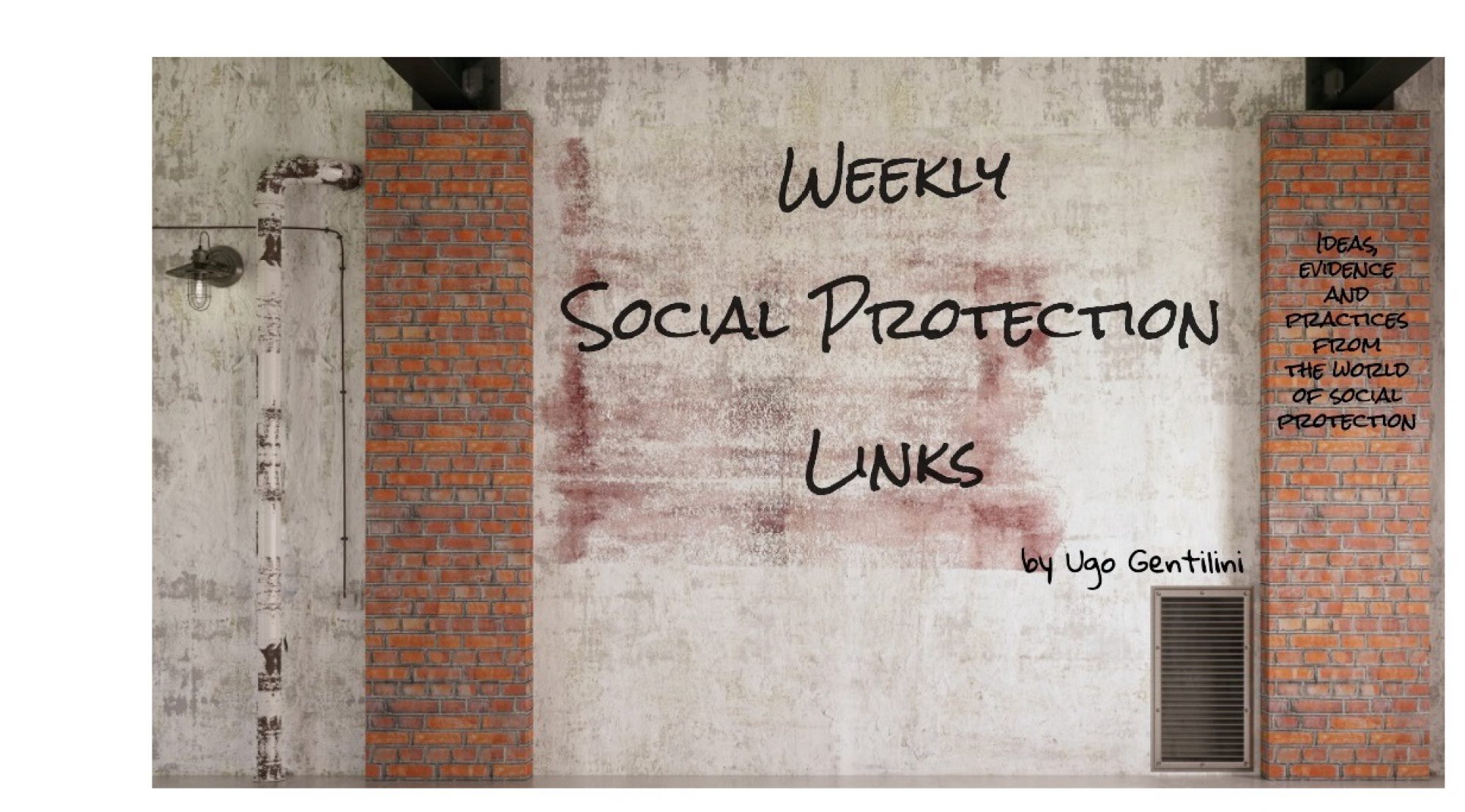
How ready are countries’ social protection systems to withstand shocks? What technical factors inhibit the prompt scale up of cash transfers? In other words, can we “stress test” social protection? A new tool developed by the World Bank in partnership with CDP does precisely that: designed to simulate scenarios of needs (part 1) and assess the readiness of countries to meet them (part 2), it scores the ability of ramping up cash transfers through about 30 practical questions spanning 4 main building blocks and 7 sub-components. The tool’s version 1 is just out, with future updates released based on roll-out lessons (feel free to contact the team for more info).
From “how much” coverage to “who” to cover: Schnitzer and Stoeffler compare the performance of different targeting methods in 9 Sahelian countries. Their study finds that results boil down to “… the definition of the targeting objectives, share of beneficiaries selected, and indexes used to evaluate targeting”. Specifically, when food security is the goal, PMT is no better than community-based targeting (CBT) and random provisions; PMT tends to outperform other methods for reaching the poorest people based on consumption; and when considering the distance to poverty lines, PMT, CBT, random and universal provisions are similar. In terms of costs, these are consistent across methods (around $5-$7 per household) and relatively minor as a % of total resources transferred (between 1.5% and 5.5%).
Speaking of costs… how much do conditional cash transfers cost? Based on the online cost software “Dioptra”, CARE conducted an analysis of 9 CCT projects in Jordan and found that their average cost is around $1,474 per child/year. The analysis also reveals that design tweaks – such as adjusting transfer size and frequency – could enhance efficiency by 30% and coverage by 40%… but of course at the expense of adequacy and duration.
From efficiency to effectiveness: a new paper by Zhang and Imai evaluates the effects of the late PROGRESA conditional cash transfers program in Mexico after 20 years! Startling findings: children in participating families “… achieved better educational attainments in both durations and levels and were more likely to work and earn a higher salary” compared to control households. For instance, for children aged 13-18 salaries were 7.7%-9.4% higher (h/t Jose Romero).
And from LAC to Asia: as part of its Covid response, Vietnam provided social assistance to 12% of the population at a cost of about 1% of GDP according to a new World Bank report. The response included transfers to 6 different profiles of existing and new beneficiaries for a total of 12.9M people out of the planned 20M (see table 2, p.37). Lessons learned? “Future crisis should be biased in favor of more ambitious action, including by providing more generous assistance with wider coverage early in a crisis and tapering to more targeted assistance once impacts are better understood”.
More on Covid responses! In the US, it seems that current measures were more pro-poor than in the great recession: Mason shows that households at the 10th percentile had an income 4% higher in September 2021 than in the same month in 2019. Over the 2007-2009 period, by contrast, real income at the 10th percentile fell by 8%. Real income the 80th percentile, on the other hand, fell by about 3% in both periods (h/t Martin Ravallion).
Between 2005 and 2018, 41 countries had at least one riot directly associated with popular demand for fuel. McCulloch et al found that such fuel riots are closely associated with domestic price regimes: countries that maintain fixed price regimes—notably net energy exporters—tend to have large fuel subsidies. When such subsidies become unsustainable, domestic price adjustments are large, often leading to riots. Specifically, a 10% increase in the size of subsidies increases the probability of a fuel riot by around one third. Bonus: UNDP has some interesting visuals and factoids on energy subsidies: “… [a]n average of $423 billion of public funds are spent every year on fossil fuel subsidies. (…) The trillions of dollars spent on old technology can be instead used to (…) build social safety nets”.
From one subsidy to another: in Malawi, Limbikani Mwale et al discuss the negative impact of farm input subsidies (FISP) on women’s agency; and in the same country, Mkandawire et al document that the majority of the urban and peri-urban youth engaged in agribusiness across Malawi work in sole farming (family farm or ganyu) (h/t Jose Romero).
A trio of humanitarian-related resources! Slim reflects on “climate humanitarianism” and the changes needed to move from war aid to climate aid; Oxfam released a “learning brief” illustrating how humanitarian responses can strengthen social protection systems; Humanitarian Outcomes released a report showing that violence against aid workers in 2020 claimed 484 individual victims.
Assorted mix! Demombynes et al estimate that excess deaths among seniors (over 65 years) in high and upper middle income countries were 11% and 37%, respectively; based on birth data from the 1810s to the 1970s in 47 countries, an article by Baten and Maravall estimates that colonialism led to lower heights of at least 1.1cm among populations in Africa; and Alenda-Demoutiez reviews the book by Martens et al on International Organizations in Global Social Governance.
Let’s round up this edition with past and future events: the recording of the Oct 26 event by ADB et al on aging, disability and social protection is now available, while the World Bank, GIZ and the African Union are convening a two-day virtual workshop on digital social protection (Nov 15-16)… register here soon! (h/t Christian Bodewig).
